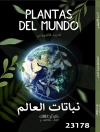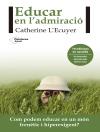Through an ethnographic study that took place in highly diverse primary school classrooms in London and the East of England, UK, this book engages with teachers’ perspectives and children’s descriptions of their plurilingual experiences, as it explores what constitutes, hinders and potentially facilitates teachers’ agency in multilingual pedagogies. The concept of teacher agency offers a powerful lens for critical reflections on the – often monolingual – status quo and on possible transformations in schools, where teachers seek to create pedagogical spaces that acknowledge, engage and promote pupils’ plurilingual repertoires. This book develops a nuanced framework for understanding and enhancing teacher agency in multilingual pedagogies. It also encourages teacher educators and policymakers to recognise multilingual pedagogies as an integral part of (primary) school pedagogy and to support the capacity of present and future teachers to build on their professional knowledge and experiences, when normalising multilingual pedagogies in mainstream schools.
Table of Content
Acknowledgements
Key to Transcripts
Introduction
Chapter 1. Multilingual Pedagogies and Teacher Agency – Mapping out the Frameworks
Chapter 2. Researching Teacher Agency: The Study
Chapter 3. Classrooms in Real Schools: Contexts for Teacher Agency
Chapter 4. Schools: Contexts for Multilingualism?
Chapter 5. Between the Monolingual Norm and Superdiverse Voices
Chapter 6. Teachers’ Perspectives in Busy Multilingual Classrooms
Chapter 7. Towards Possibilities of Multilingual Pedagogies
Chapter 8. Teacher Agency in Multilingual Pedagogies: No Guarantees
References
Index
About the author
Thomas Quehl is a primary school teacher and Visiting Research and Knowledge Exchange Fellow at the Centre for Language, Culture and Learning at Goldsmiths, University of London, UK. His research interests include multilingual pedagogies and multilingualism and teacher professionalisation.












